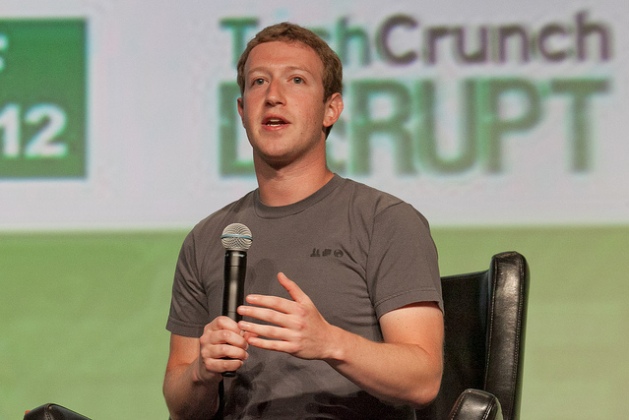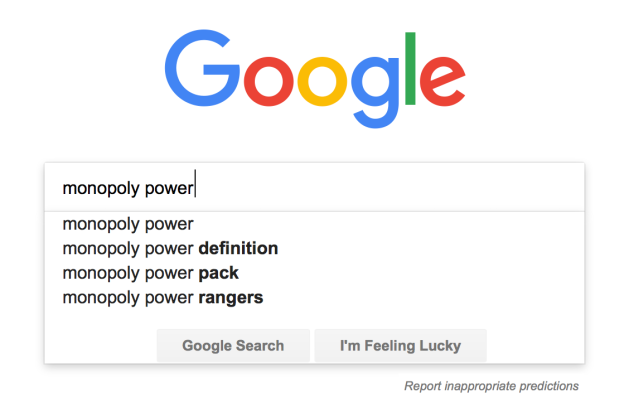Previously published at WGBHNews.org.
Over the weekend, Donald Trump Jr. posted a shockingly offensive message on Instagram claiming that former Vice President Joe Biden is a child molester. Next to an image of Biden appeared the words “See you later, alligator!” Below was a photo of an alligator with the retort “In a while, pedophile!” (No, I won’t link to it.)
Outrage came swiftly. “The dangerous and untrue charge of pedophilia is the new marker — so far — of how low the Trump campaign will go to smear Biden,” wrote Chris Cillizza at CNN.com. Jonathan Martin of The New York Times called it “an incendiary and baseless charge.” In The Guardian, Martin Pengelly said “most observers” (was that qualifier really necessary?) regarded it as “beyond the pale even in America’s toxic political climate.”
What few analysts noticed, though, was that Trump Jr.’s vile accusation, which he later claimed was a joke, lined up perfectly with a conspiracy theory known as QAnon. Bubbling out of the darkest corners of the internet, the theory claims, in broad strokes, that President Donald Trump is secretly working to destroy a plot led by the Clintons — but of course! — and other Democrats who engage in child abuse and cannibalism. And in order to defeat these malign forces we must heed the cryptic messages of Q, an insider who is helping Trump rout the forces of evil and save the world.
QAnon, in effect, is the ur-theory connecting everything from Pizzagate to paranoia about the “deep state” to regarding impeachment as a “hoax,” as Trump has put it. The Trumps have dabbled in QAnon from time to time as a way of signaling their most wild-eyed supporters that they’re on board. But there’s no exaggerating how dangerous all of this is.
We are living, unfortunately, in a golden age of conspiracy theories. Some, like Alex Jones of Infowars infamy, claim that mass shootings are actually carried out by “crisis actors” in order to give the government a rationale to seize everyone’s guns. Then there’s the anti-vaccine movement, currently standing in the way of any rational response to the COVID-19 epidemic. Indeed, a widely watched video called “Plandemic” falsely claims, among other things, that face masks make you sick and that people who’ve had flu shots are more likely to get COVID.
There’s nothing new about conspiracy theories, just as there’s nothing new about so-called fake news. Never mind the assassination of John F. Kennedy, the subject of a new, weirdly compelling 17-minute song-poem by Bob Dylan called “Murder Most Foul.” A century earlier, there were those who blamed (take your pick) Confederate President Jefferson Davis or Pope Pius IX for the assassination of Abraham Lincoln.
But conspiracy theorizing in the 21st century is supercharged by the internet, with a significant assist from Trump. Trump has indulged not just QAnon but also Alex Jones, the anti-vaxxers and all manner of foolishness about the deep state — the belief that the U.S. government is run by a shadowy cabal of bureaucrats and military officials who are seeking to undermine the president. At its heart, that’s what Trump seems to be referring to when he tweets about “Obamagate!,” a scandalous crime lacking both a scandal and a crime. And let’s not forget that Trump began his political career with a conspiracy theory that he made his own: falsely claiming that Barack Obama was not born in the United States and was thus ineligible to serve as president.
In recent days, the media have converged in an attempt to explain and debunk these various conspiracy theories. Last week, public radio’s “On the Media” devoted a segment to QAnon and “Plandemic.” The investigative website ProPublica has published a guide on how to reason with believers. The American Press Institute has offered tips for reporters. The Conversation, which brings academic research to a wider public, has posted an article headlined “Coronavirus, ‘Plandemic’ and the seven traits of conspiratorial thinking.”
By far the most ambitious journalistic effort is a special project published by The Atlantic called “Shadowland.” And the heart of it is a nearly 10,000-word article by the executive editor, Adrienne LaFrance, profiling the QAnon phenomenon and how it has infected thousands of ordinary people.
“QAnon is emblematic of modern America’s susceptibility to conspiracy theories, and its enthusiasm for them,” LaFrance writes. “But it is also already much more than a loose collection of conspiracy-minded chat-room inhabitants. It is a movement united in mass rejection of reason, objectivity, and other Enlightenment values. And we are likely closer to the beginning of its story than the end.”
What makes QAnon, “Plandemic” and other conspiracies so powerful is that believers have an explanation for every countervailing truth. Experts and others in a position of authority are automatically cast as part of the conspiracy, whether you’re talking about Dr. Anthony Fauci, Hillary Clinton or Joe Biden.
“For QAnon, every contradiction can be explained away; no form of argument can prevail against it,” LaFrance writes. This type of belief system is sometimes referred to as “epistemic closure” — the idea is that believers live in a self-contained bubble that explains everything and that can’t be penetrated by contrary facts.
What can the media do in the face of such intense beliefs? In all likelihood, the answer is: not much. There is a school of thought among some press critics that if only news organizations would push harder, prevaricate less and devote themselves more fully to truth-telling rather than to reporting “both sides,” then a new dawn of rationality would surely follow. But that fundamentally misunderstands the problem, because the mainstream, reality-based media are regarded as part of the conspiracy. Journalism is grounded in the Enlightenment values that LaFrance invokes — the expectation that false beliefs will give way when confronted by facts and truth. Unfortunately, that’s not the world we live in today.
It should be noted that after Donald Trump Jr. posted his hideous attack on Joe Biden, Instagram neither deleted his post nor took down his account. Instagram, as you probably know, is owned by Facebook and is thus firmly ensconced within the Zuckerborg, which wants us all to believe that it is so very much concerned about truth and hate speech.
Thus does such garbage become normalized. You see a reference to Biden as a pedophile, and it seems off the wall. But then you remember he’s apologized for being handsy with women. And wasn’t he accused of sexual assault? And now look — there’s something on the internet about Democrats and pedophilia. Gosh, how are we supposed to know what to think?
Welcome to our nightmare.










